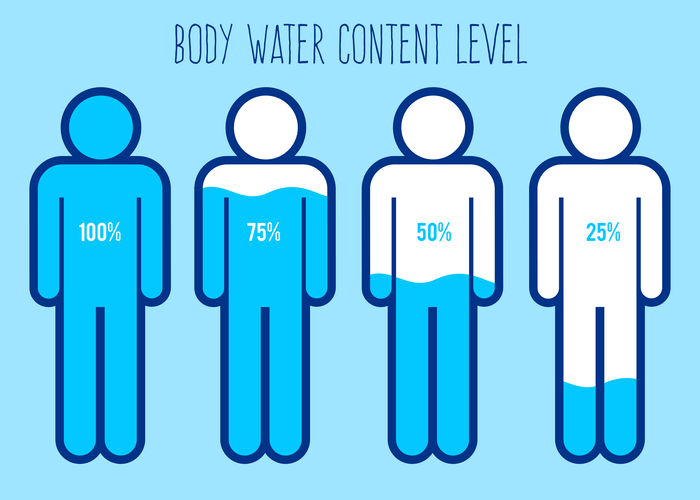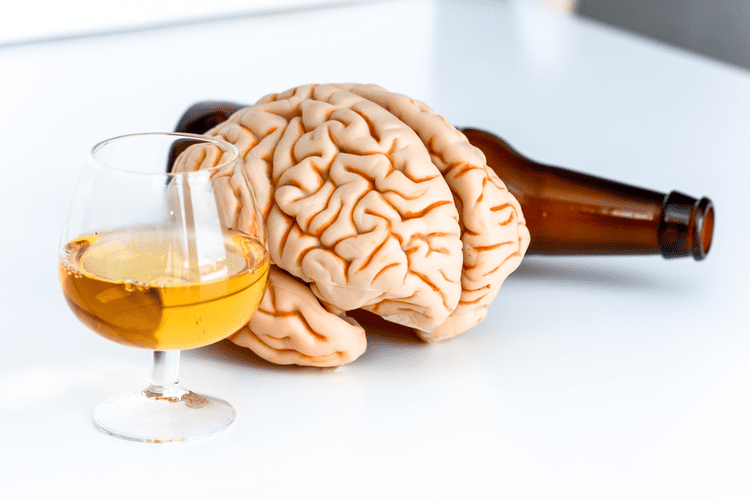Content
Despite your best efforts to stay sober or reduce your alcohol consumption, it’s important to realize that anyone can return to misusing alcohol as a way to cope. Relapse happens, in part, because alcohol use disorder is a chronic condition. Even people who get help, attend a treatment program, and are actively in recovery, can relapse. Similarly, Weisner, Matzger & Kaskutas found that treated alcohol-dependent individuals had higher 1-year non-problem use outcomes (40% versus 23%) than did untreated individuals. Overall, these studies suggest that, especially among individuals who recognize their alcohol problems, treated individuals achieve higher remission rates than do untreated individuals. The longer one is able to maintain their sobriety, the better chance they have at long-term recovery.
The relapse rate for alcohol is similar to those for nicotine and heroin addiction. Online learning opportunities on substance use disorders, alcohol and drug prevention, violence prevention, behavioral health issues, and more. A priority for future research is to find out why individuals who recognize their alcohol problems and initiate help seeking do not obtain timely help.
- During difficult times, it is more important than ever for these individuals to focus on a recovery program of openness and honesty with themselves and with those who can help and support them.
- Although medical detox can get rid of the physical dependence on drugs or alcohol, aftercare is crucial in helping change the way you think about using substances.
- Was it something specific they were scared to deal with – unresolved trauma or family of origin issues?
- Internal factors such as depression and anxiety symptoms put people at higher risk for relapse.
Ideally you want to reach a point in your recovery where you can enjoy social gatherings where other individuals are drinking alcohol and not be triggered to relapse, but this often takes time and effort. One should not surround themselves intentionally with other people who are using alcohol or drugs unless they have a stable foundation in their own recovery. It is also helpful to have a plan in place when surrounding oneself with people who are using alcohol or drugs, and bring a sober support and accountability partner with them when possible.
Alcohol Relapse And Its Predictors After Liver Transplantation For Alcoholic Liver Disease: A Systematic Review And Meta
Relapse is usually triggered by a person, place or thing that reminds a person of alcohol. When the brain processes the memory, it causes cravings for the substance. The first two stages represent a progression away from recovery and toward a full relapse. For people who have established a sustained period of sobriety, relapse doesn’t occur overnight.
When you lose interest in a hobby or you lose a loved one, you might feel the need to have a drink or do drugs to cope. This is why it’s important to manage any depressive symptoms you have by seeing a doctor so that you don’t relapse. Data obtained from each study was independently extracted by two reviewers (L.C. and A.S.) using a standardized extraction form. Study design, details of the publication, the number of subjects, and baseline characteristics of study populations were extracted including patients with alcohol relapse and predictive factors of alcohol relapse after LT. The work studied adult patients aged over 18 years with alcoholic liver disease who underwent any type of LT.

The magnitude and risk factors of post-LT alcohol relapse are not well described. We conducted a meta-analysis to evaluate alcohol relapse rate and its predictors after LT.
Why Are Addiction Relapse Rates So High In Early Recovery?
Lack of participation appears to hinder the results of the program. If people don’t adhere to the structure and attend regular meetings, they won’t receive the full benefit of the program, so it’s important that people are committed to AA to Sobriety succeed. Detox without medical supervision can be life-threatening. Discover how we’re providing personalized treatment based on breakthrough research. For example, reassure the patient with encouragement such as “We can do this together.”
What Happens if I Relapse? – Addiction Center
What Happens if I Relapse?.
Posted: Fri, 29 Oct 2021 07:00:00 GMT [source]
Contrary to popular belief, relapse is a normal part of recovery. It’s not desirable, and it can be a big hurdle to overcome, but it’s not a failure.
Take The First Step Into Recovery Today
It’s not like I didn’t do this before.” When they start adding a second, third or fourth treatment experience, they sometimes wonder why other people can get this the first time around when they can’t. So, it’s not always a case of pick yourself up, dust yourself off and get back to meetings. Over time, the effect of naltrexone to block this euphoric effect can alcoholic relapse signs result in pharmacological extinction and the elimination of craving for alcohol. Verywell Mind articles are reviewed by board-certified physicians and mental healthcare professionals. Medical Reviewers confirm the content is thorough and accurate, reflecting the latest evidence-based research. Content is reviewed before publication and upon substantial updates.

The following are some common causes of relapse in early recovery. Triggers, which we’ll explain more later in this blog, are also typical causes of relapse. In 2018, the Center for Network Therapy in West Orange, NJ, reported that more than 60% of previous patients registered for rehab before the holidays, up from 25% in 2017. The studies that reported less than 6 months of abstinence were both non-significant and significant leading to a contour-enhanced funnel plot; thus, asymmetry may not be due to either publication bias or heterogeneity. The studies with negative effect of psychiatric co-morbidities and abstinence less than 6 months were not reported. The eight-year follow-up showed that 46% of those who chose formal treatment were abstinent while 49% of individuals who attended AA were abstinent.
Study Selection
However, studies published in recent years provide a picture of current relapse rates. People in recovery from alcohol addiction are at the highest risk of relapse during the early alcoholic recovery stages, in the immediate moments after a traumatic event or during times of transition. Most people in recovery must actively take steps to avoid relapse for the rest of their lives. Proper self-care will make you feel better about yourself, and will be sending a message to yourself that you care about your wellbeing. Conversely, poor self-care sends messages to yourself that you don’t care about your wellbeing and can trigger a relapse. For example, eating a diet that is unhealthy, low in nutrients, and/or high in sugar may result in poor physiological and neurological health that can lead to low mood and cause alcohol or drug cravings. Weight gain can lead to individuals feeling depressed, and trigger thoughts that their substance use might help them lose the weight they have put on.

There are no guarantees in recovery, but there is one highly likely result. Once you choose to get help and then complete a treatment program, there will be more. But there is a way to stop the maddening merry-go-round of relapse. Despite all the abysmal statistics that seem to drain away hope for sustained sobriety, there is a solution. That solution is to follow a few proven recovery suggestions to help avoid a relapse. With CNT’s superior client care and high quality treatment, Dr. Cidambi and her clinical team have successfully detoxed over 1500 patients in four years. In this pharmaceutical era that reminds us constantly that there is a medication to help with any problem, taking a pill can seem quite normal.
Continued Care
So, when it comes to what percentage of alcoholics recover, it’s 36%. This percentage increases as recovering alcoholics maintain their sobriety or a low level of drinking. Stopping drug use is just one part of a long and complex recovery process. When people enter treatment, addiction has often caused serious consequences in their lives, possibly disrupting their health and how they function in their family lives, at work, and in the community. Different types of medications may be useful at different stages of treatment to help a patient stop abusing drugs, stay in treatment, and avoid relapse. The final stage of relapse is the physical act of drinking or doing drugs. Relapsing can lead to an even worse addiction or even death.
Frequently review your recovery plan and seek to implement positive changes in every aspect of your life. Substance use disorder usually involves deeply rooted behaviors and emotions that are often complex.
Rates Of Short
Warning signs for physicians that a patient has relapsed include missing appointments or attending AA meetings less frequently. Warn patients to avoid testing themselves, particularly early in sobriety. Encouraging involvement in exercise and other leisure activities also is helpful. In treatment, as well as in 12-Step Programs, people learn new, healthy behavior patterns and ways to cope with their previous, dysfunctional choices, so as to protect themselves from relapse. Service Work – Numerous studies have shown that helping others can be of great benefit to people in recovery, improving mood, decreasing anxiety and depression, increasing self-esteem and strengthening a sense of purpose. These have all been shown to be powerful factors in successful recovery.

Although those are completely understandable feelings to have when you’ve relapsed, it’s also important to know that relapse is a completely normal part of the recovery process. The term “relapse” refers to when people who have quit a drug or alcohol start using their substance of choice again. Other times, it takes weeks, months, or even years to stop using again. Patients should spend time thinking about circumstances during which they feel at highest risk for relapse. They should anticipate these situations and make a written list. Most persons with alcoholism can quickly list the circumstances and/or emotions that led them to drink.
The Incidence Of Alcohol Relapse
When drinking is the furthest thing from someone’s mind, then not drinking is no longer a conscious thought, either. It can be dangerous to lose sight of the principles of recovery because everything is going well. More relapses occur when life is going well than when it is not. New Directions for Women helps patients join the positive side of alcoholism recovery statistics.
 Avatud: E-R: 10:00 - 18:00
L: 10:00-15:00 P: Suletud
Avatud: E-R: 10:00 - 18:00
L: 10:00-15:00 P: Suletud 
